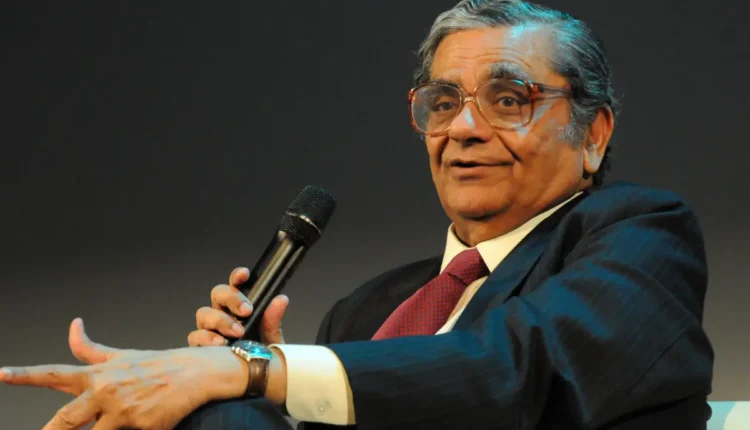Jagdish Bhagwati, born on July 26, 1934, is not merely an economist but a visionary whose intellectual prowess has shaped the landscape of international trade theory. His impact extends beyond academia, influencing policy, economic reforms, and global perspectives.
Early Years and Personal Life of Jagdish Bhagwati
Jagdish Bhagwati hails from a distinguished Gujarati family in the Bombay Presidency, with a lineage that includes an Indian judge and the former Chief Justice of India, P. N. Bhagwati. Growing up in this environment, Bhagwati’s early education at St. Xavier’s High School and later at Sydenham College, Mumbai, laid the foundation for his academic journey.
His pursuit of knowledge led him to England, where Jagdish Bhagwati studied at St. John’s College, Cambridge, and Nuffield College, Oxford. Bhagwati earned his PhD in economics from the Massachusetts Institute of Technology in 1967, focusing on “Essays in International Economics” under the guidance of Charles P. Kindleberger.
Jagdish Bhagwati’s personal life is intertwined with his professional journey. He is married to Padma Desai, a Columbia economist and Russia-specialist, with whom he authored the influential 1970 OECD study, “India: Planning for Industrialization.”
Career Trajectory
After completing his PhD, Jagdish Bhagwati returned to India in 1961, briefly teaching at the Indian Statistical Institute, Kolkata, and later as a professor of international trade at Delhi School of Economics. His academic journey then took him to the Massachusetts Institute of Technology, where he served as the Ford International Professor of Economics from 1968 to 1980.
Since 1980, Jagdish Bhagwati has been a stalwart at Columbia University, holding various prestigious positions, including University Professor of Economics and Law. His influence also extends globally, with roles as a special adviser to the United Nations, economic policy adviser to Arthur Dunkel, and external adviser to the World Trade Organization.
Awards, Honors, and Commentary
Jagdish Bhagwati’s contributions have not gone unnoticed, with a plethora of awards and honors recognizing his exceptional work. From the Mahalanobis Memorial Medal to the Padma Vibhushan, Bhagwati’s accolades mirror the profound impact he has made on the field of economics.
Nobel laureate Paul Samuelson aptly describes Bhagwati’s work as a composition of symphonies, each article representing top-notch quality. The tireless advocacy for globalization as a force for social good distinguishes Bhagwati’s legacy.
In Defense of Globalization
In 2004, Bhagwati published “In Defense of Globalization,” a seminal work where he argues that globalization, when properly governed, is a powerful force for social good. He highlights how globalization positively influences women’s causes, reduces child labor, and enhances literacy, emphasizing the human face of this global phenomenon.
Legacy and Impact
Jagdish Bhagwati’s legacy is etched not only in the halls of academia but in the policies and reforms that have shaped economies. The Indian economic reforms of 1991 bear the indelible mark of Bhagwati’s intellect, making him the intellectual father of this transformative period.
Also Read: Radhakrishna Rao: Bridging Nations and Fields of Knowledge

